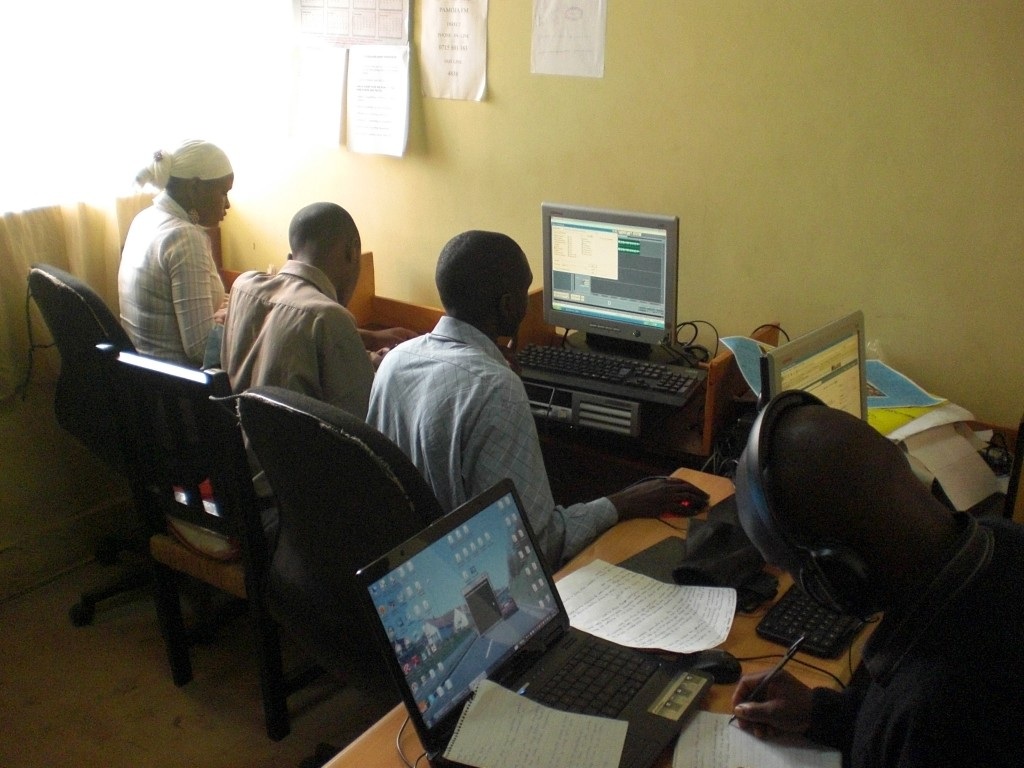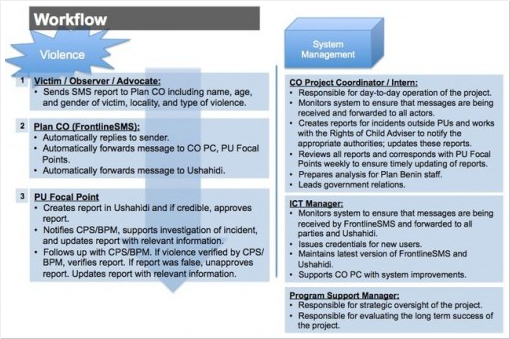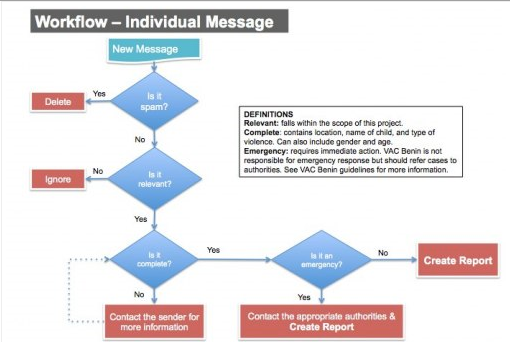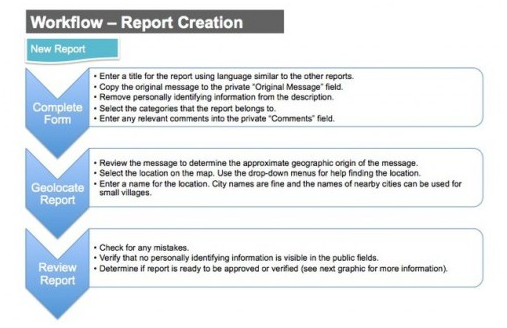This is a re-post from Columbia Reports website. Many thanks to Kevin Tse for kindly giving us permission to re-post on to our blog.
Artisanal mining traditions and culture dating back to when the Spanish first brought African slaves to mine the region known today as Choco, are being reintroduced into the 21st century marketplace with the help of a text message.
The Choco Bioregion stretches from Panama, through Colombia and into Ecuador along the pacific coast of the South American continent. It has some of the richest biodiversity on the planet. Its human inhabitants are pre-dominantly Afro-Colombian, descendants of the slave trade. Dense jungle, heavy rains and poor infrastructure leave these inhabitants isolated from the rest of Colombia and the world.
Local economies are still very much stimulated by the centuries-old trade that forced their ancestors to Choco. Gold.
An elaborate gold panning process practiced by their ancestors remains alive today. Families dig shallow pits near streams and sift through the gold-rich sands to collect small, alluvial flakes. To separate the gold from the wet sand, the locals fetch the plant they call "Balso" that, when mixed with water, naturally separates the grains of gold from those that hold no value.
The mining process is second nature to the people of Choco. The difficulty lies in getting their gold to the international marketplace and guaranteeing legitimate deals for the miners.
How does an artisanal miner who might have to walk hours with no road through thick jungle to get to the nearest town, stay informed and competitive in the international gold market?
The Oro Verde Program created and implemented by two local Community Councils, Fundacion Las Mojarras and the NGO AMICHOCO piloted a project in May that uses mass text messaging (SMS) technology to inform artisanal miners in the region of the daily, London Fix price for gold.
Each morning from May 9 to May 27, 39 miners from the village of Tado, Choco received a text from a computer in Oro Verde's office in Medellin detailing the date, and the price of gold and platinum in Colombian pesos per castellano. A castellano is the colonial weight measurement for gold that locals still refer to in present day. One castellano is equal to roughly 4.6 grams.
The Oro Verde or Green Gold program has been operating in Choco since 2000. They are a link between the miners and the international gold market.
Born out of the ideas of local community leaders, Oro Verde, AMICHOCO, and the Community Councils (similar to Native American tribal councils) from the villages of Tado and Condoto work with artisanal miners to obtain internationally recognized Fairtrade certification, connect them with the international marketplace, preserve the biodiversity of the region as well as preserve the artisanal traditions of the miners.
AMICHOCO representatives Sandra Hernandez, Maria Luisa Villa and Kevin Tse told Colombia Reports that they deal directly with 5% of the mining populations in the two traditional mining towns of Tado and Condoto and with this new pilot program hope to increase miner participation and solidify loyalty with the miners, a process that according to the representatives takes time.
"The mentality of the people [of Choco] is cautious ... Historically they have been taken advantage of," said Kevin Tse who added, "It is a slow process to build trust."
Luis Gilberto Murillo, former governor of the Choco department, described the exploitation in the region during a 2001 speech in New York. "The exuberant rain forest, complex ecosystem, wealth of natural resources and preservation of our ancestral traditions and culture, have not been enough to pull us out of endemic poverty. Historically, large companies have reaped the wealth of our mining and forestry resources. They have left the people with extremely poor living conditions -the poorest in the country."
"This is our history, a history of State and private sector neglect and exploitation," said Murillo.
Beyond exploitation by the government and the private sector, Choco has also been terrorized by armed groups from both sides of the Colombian conflict.
The United Nations Refugee Agency (UNHCR) reported April 27 that, "In the past two months, more than 1,800 people in the Pacific Coast departments of Valle del Cauca, Cauca, Choco and Nariño have sought shelter in safer areas for fear of being caught in an increasingly violent struggle between illegal armed groups to control mining and coca growing activities."
Black market buyers nationwide --some with ties to illegal armed groups-- reportedly offer miners payments for gold that range roughly 20%-30% higher than the legal market price, apparently to facilitate laundering of illicit money.
For its part, Oro Verde along with AMICHOCO and the Community Councils of Tado and Condoto hope to enhance the economic and social prosperity of the villages by utilizing traditional mining methods mixed with current technology.
"We couldn't have done this five to ten years ago," said Tse who remarked that the cell phone technology has just recently become available and economically feasible for people in these rural areas.
The pilot is relatively inexpensive for both sides. There is no cost for miners to receive a text message, and a laptop with a USB modem and a SIM card with enough credit for 40 plus daily messages is all the program needs to function. The Frontline SMS software that sends the mass text messages is free of charge for NGOs and social organizations. If the plan takes hold and expands however, Oro Verde said they will require a sponsor for the SIM card credit that pays for the daily messages.
There is an incentive for miners and the community to use Oro Verde as a dealer to the international precious metals market. A premium of 15% (10% for Fairtrade and Fairmined and additional 5% Ecological premium) is paid to the miners by the program as part of their Fairtrade certification requirement. The miners are paid 2% of the premium directly when they sell their gold to the Community Council. The remaining 13% is deposited into community funds that are managed by the Council and put towards improvements in housing infrastructure, emergency preparedness and tools for the miners.
Oro Verde hopes this month's pilot program catches on with the miners so they can expand the use of the mass text technology, eventually incorporating information about workshops and safety tips for the miners. The Frontline SMS software has the capability to receive responses from the miners as well. Oro Verde hopes that in the future it will be possible for the miners to contact their office with the amount of gold and platinum they expect to sell that month so they can be prepared to present it to the international market.
According to the representatives, the market for Fairtrade and Fairmined precious metals is growing. People are becoming conscious of their purchases and how they affect the communities where the products originate. They believe that Choco gold and platinum, mined by hand using traditional artisanal methods of the Afro-Colombian people has an attractiveness to the conscious consumer.
Mining communities have been in the region since the early 16th century slave trade began in Colombia. Artisinal traditions have persisted through economic and violent discrimination from the Colombian government as well as illegal armed groups. Oro Verde stresses that the communities of Tado and Contodo built their craft over hundreds of years and that Oro Verde's function is to bring their fair traded, fair mined, ecologically friendly precious metals to the international market
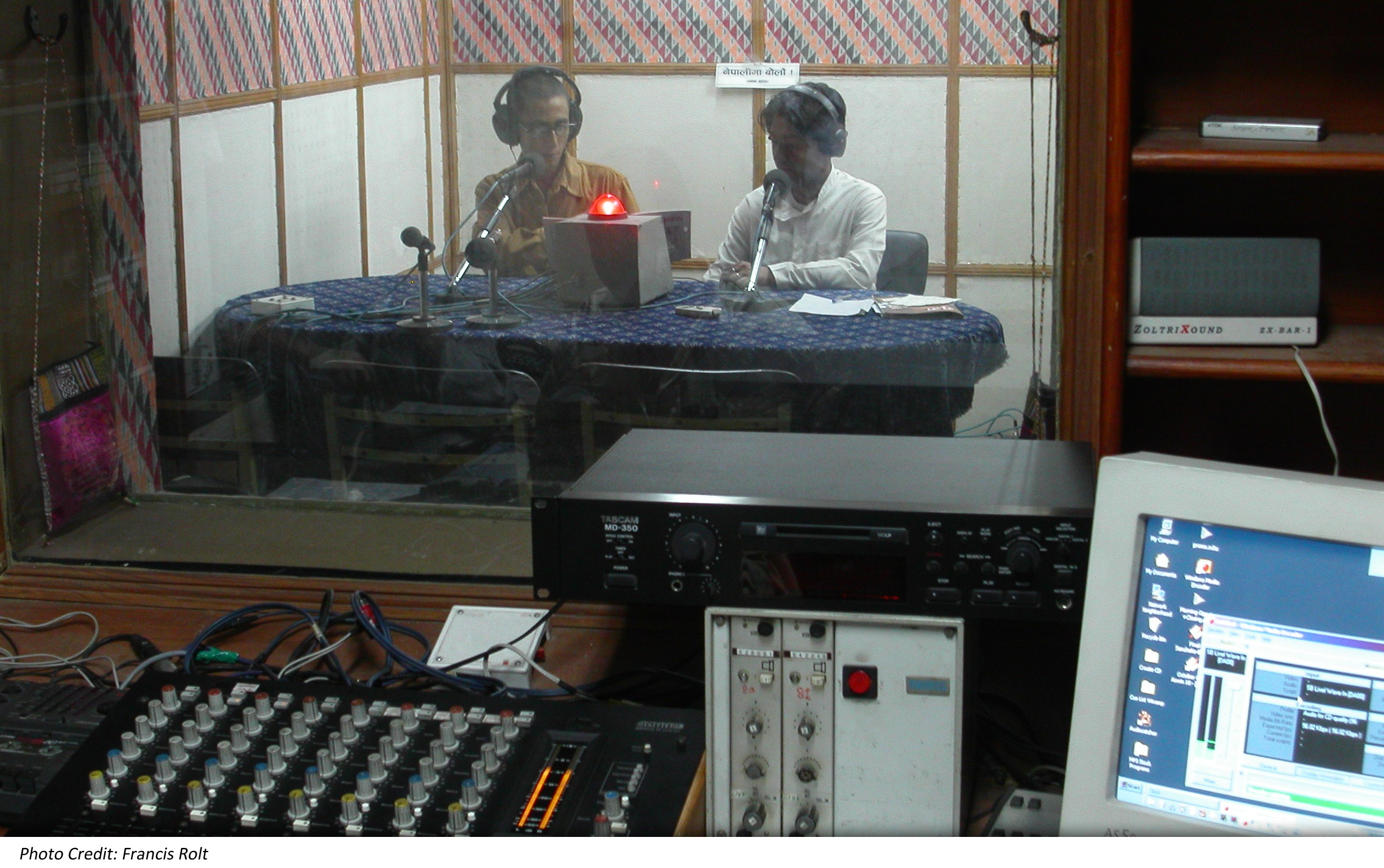 In an interview with Francis Rolt from Radio for Peace Building, Hussain Abdullah reflects on how radio can be used for promoting peace. To read the full article on the FrontlineSMS:Radio website click here
In an interview with Francis Rolt from Radio for Peace Building, Hussain Abdullah reflects on how radio can be used for promoting peace. To read the full article on the FrontlineSMS:Radio website click here


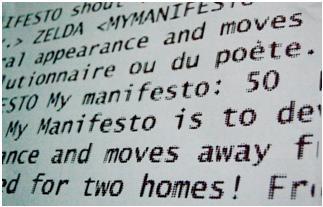
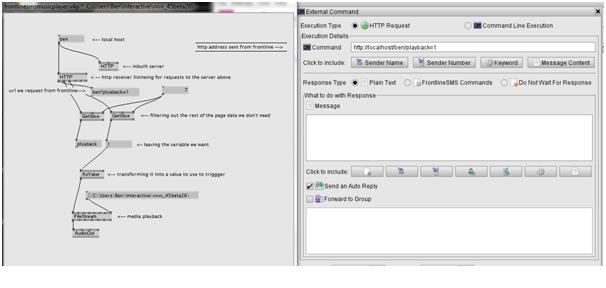



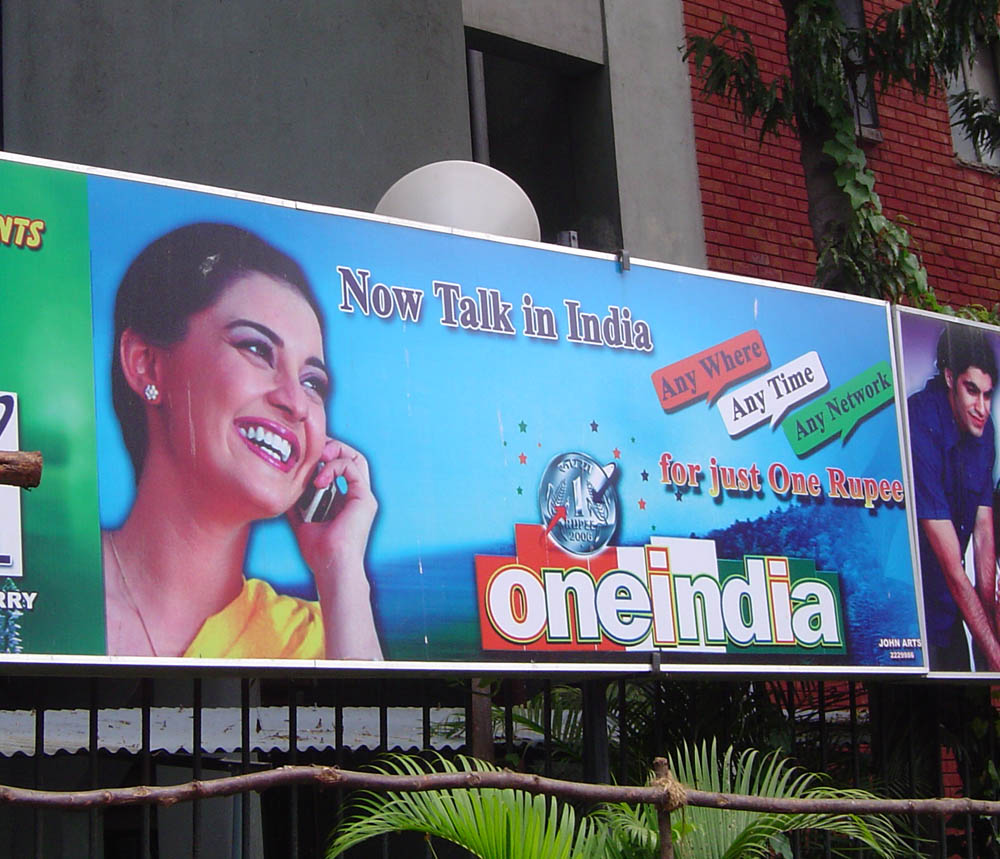

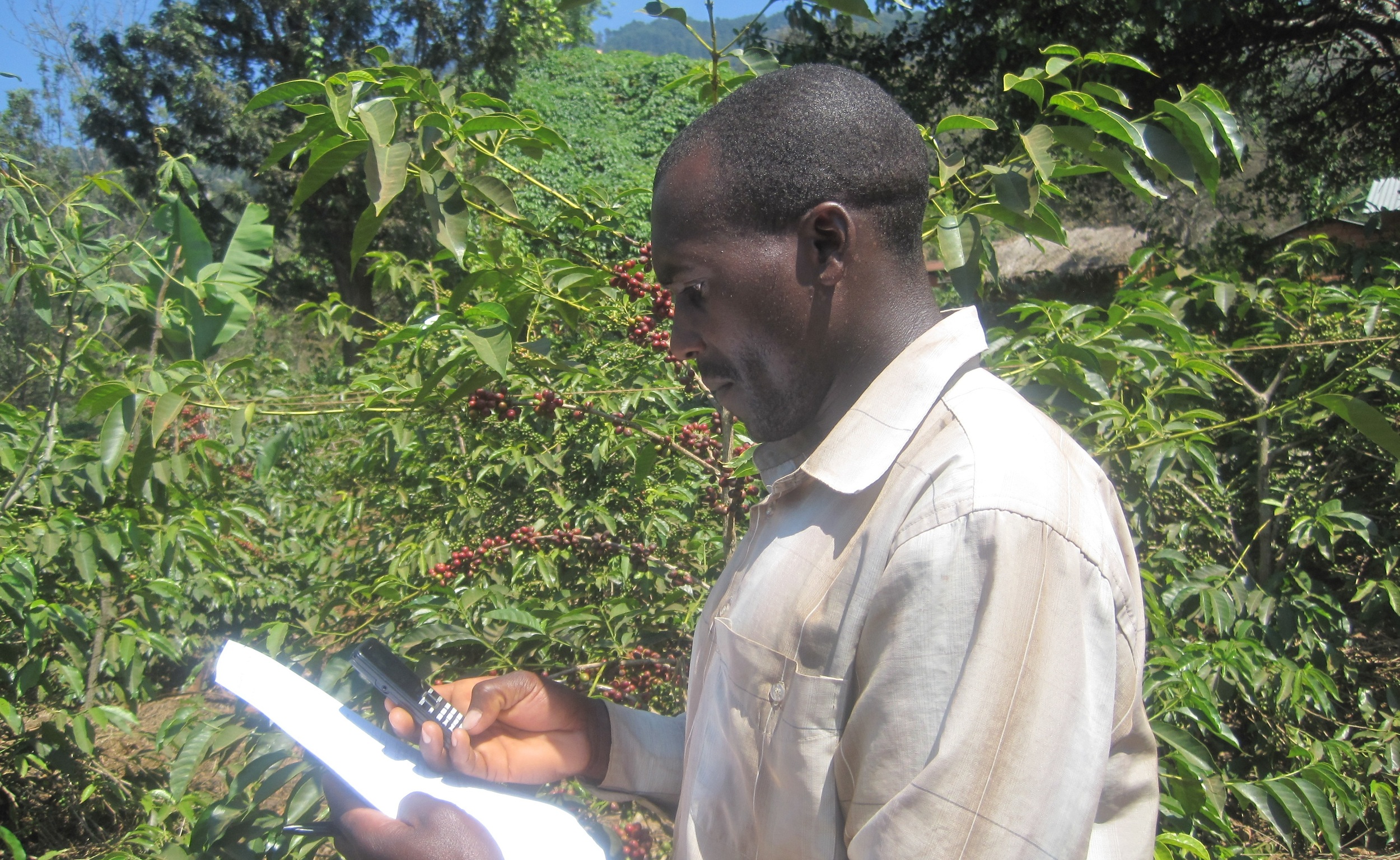




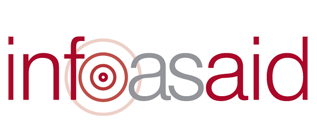 infoasaid is a consortium of Internews and the BBC World Service Trust. The objective is to improve how aid agencies communicate with disaster-affected communities - the focus is on providing humanitarian information. The emphasis is on the need to deliver information, as aid itself, through the most appropriate channels. In this guest blog post first published
infoasaid is a consortium of Internews and the BBC World Service Trust. The objective is to improve how aid agencies communicate with disaster-affected communities - the focus is on providing humanitarian information. The emphasis is on the need to deliver information, as aid itself, through the most appropriate channels. In this guest blog post first published 
